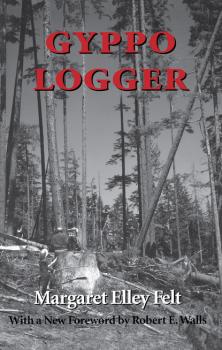Историческая литература
Различные книги в жанре Историческая литератураDonker Stroom. Eugene Marais en die Anglo-Boereoorlog
Aan die einde van 1896, enkele jare voor die Anglo-Boereoorlog, het die 26-jarige wewenaar en Transvaalse koerantman Eugène Marais na Londen vertrek om in die regte te gaan studeer. Hier het hy oënskynlik tot in die doodsnikke van die oorlog gewoon. Oor hierdie lewensjare van een van Afrikaans se beroemdste letterkundige figure is baie min bekend. Leon Rousseau sê in sy baanbreker-lewensverhaal oor Marais, Die Groot Verlange (1974): “Tensy ontdekkings gemaak word wat ’n mens jou op die oomblik kwalik kan voorstel, sal dit altyd onmoontlik bly om ’n samehangende relaas van Marais se vyf jaar in Europa te gee.” Hierdie ontdekkings en nog baie meer is nou gemaak. In Donker Stroom word onthul presies waarmee Marais hom kort voor, tydens en ná die bitter stryd tussen Boer en Brit besig gehou het, ’n verstommende verhaal wat ’n mens jou skaars kan indink. Was Marais die onkreukbare patriot en joernalis wat sy biograwe van hom gemaak het, of is hierdie Afrikaner-ikoon ook deur die donker stroom van die tydsgees meegesleur?
Ons oorlog
Die vuur begin met geweldige drif in die huis te brand. Aan die westekant van die garingbome trek yl grys rook die lug in; die lappie winterkoring is ook brandgesteek. Oor ’n ruk sal net ’n swart tapyt agterbly.
Lenie trek al die registers uit en pomp die musiekie se twee pedale. Sy speel ’n psalm.
“Die vloekpsalm, Psalm 69, Leentjie. Die vloekpsalm.”
Ons oorlog verweef intieme familiestories in die groter landskap van die oorlog in die Oranje-Vrystaat, om ’n deurleefde beeld te gee van die stryd tussen Brittanje en die Boererepublieke – die lot op plase, te velde, in konsentrasiekampe en Bloemfontein; en ook van die private stryd binne gesinsverband. In die familie is daar meelopers en bittereinders, geestelik weerbare vroue en weerlose kinders. Dit gaan ook oor “oorloë” wat op ’n oorlog volg – die onopgeloste konflikte ná die sluiting van vrede.
Met deurstraalde eenvoud word ’n ontroerende tafereel van die verwikkeldheid en onontkombare droefnis van oorlog geskilder. Klaas Steytler se familieroman gaan oor ontberinge en byna ondraaglike smart, maar ook oor ’n soeke om die verlede te begryp, oor die invloed van vorige geslagte op nasate, en oor uiteindelike versoening.
Boereoorlogstories 2
Die Anglo-Boereoorlog van 1899–1902 is helderder as ooit in die Afrikaanse leser se geheue. Verkope van die eerste bundel, getitel Boereoorlogstories, het alle verwagting oorskry en het reeds ’n tweede druk van die tweede uitgawe daarvan genoodsaak. In Boereoorlogstories 2 tree ook jonger skrywers tot die gesprek toe, onder andere Christine Barkhuizen Le Roux, Jaco Fouché en Gerda Taljaard. Die verhale van lyding en opoffering wat die eerste bundel gekenmerk het, word in die tweede bundel verbreed met ’n skerper blik op verraad. Die joiner en hensopper kom as uitgeworpene onder die soeklig (“Die groot gemis”, Dolf van Coller) maar ook as feilbare mens in vertwyfeling (“Was Oupa dapper?”, Lappe Laubscher; “Groete daar op Voorstevlei”, Jaco Fouché.) Die verkwikking van humor oor ernstige sake bly nie uit nie. Ook is daar erkenning vir die feit dat alle soldate van die Britse Ryk nie demone was nie (“Eenmaal was daar ’n goeie man”, Marita van Aswegen). En die Boer Gideon Scheepers – vir die Britse Ryk ’n rebel wat teregstelling verdien het vir sy verraad jeens sy regering – word geteken in sy barmhartigheid jeens ’n Engelse vrou op die platteland. Só belig hierdie tweede bundel ’n nog wyer spektrum as die eerste in sterk verhale en ’n idioom wat die tydperk van die Anglo-Boereoorlog lewend hou: vir lesers met ’n voorkeur vir historiese verhale, maar ook vir enige leser wat die kortverhaalkuns waardeer.
Inviolate
1813<br /> <br />Numb after the pain of an intolerable betrayal, 19 year old Alexandra Broughton turns to her only source of hope – an arranged marriage. Resolutely accepting this as her last chance to make a future for herself, she journeys to Scotland to face the unknown.<br /> <br />Although Alex makes every effort to settle into her new life, she struggles to suppress the memories of her lost lover's passionate yet faithless embrace, and remains haunted by a fleeting and impossible love affair.<br /> <br />For Alex, this is a time of growing; a coming of age where she turns to her husband in a desperate effort to carve out a life with him, and just as it seems that contentment is within her grasp, disaster strikes.<br /> <br />As the war against Napoleon reaches a crescendo, Alex discovers a web of deceit that slowly unravels long-held secrets to reveal the true meaning of treachery.<br /> <br />Trapped in a loveless, violent marriage, and with nothing left to lose, Alex embarks on a fight for survival. Battling the irresistible forces ranging against her, she remains bound to the one man she can never forgive – the one man above all others she can never forget.<br /> <br />Inviolate continues the story of Alex Broughton, the passionate and determined young woman readers first met in Torn.
Arabs and Jews in Ottoman Palestine
When did the Arab-Israeli conflict begin? Some discussions focus on the 1967 war, some go back to the creation of the state of Israel in 1948, and others look to the beginning of the British Mandate in 1922. Alan Dowty, however, traces the earliest roots of the conflict to the Ottoman Empire in the 19th century, arguing that this historical approach highlights constant clashes between religious and ethnic groups in Palestine. He demonstrates that existing Arab residents viewed new Jewish settlers as European and shares evidence of overwhelming hostility to foreigners from European lands. He shows that Jewish settlers had tremendous incentive to minimize all obstacles to settlement, including the inconvenient hostility of the existing population. Dowty's thorough research reveals how events that occurred over 125 years ago shaped the implacable conflict that dominates the Middle East today.
The Rise and Fall of the ANC Youth League
What were the origins of the ANC Youth League, where has it gone wrong and how can it once again become an organisation that represents and supports South Africa’s youth? For most of its existence, the ANC Youth League has played a powerful role in the politics of the ANC, and therefore of South Africa. In this book, Youth League member Rebone Tau tells the story of the league, from its formation in Soweto in 1944 to its banning, reconstitution and current standing, highlighting key incidents that led to the organisation’s rise and fall. The book explores the radicalising role played by the league’s early leaders, such as Nelson Mandela, Walter Sisulu and O.R. Tambo; the formation of the ANC Youth and Students Section in exile, first led by Thabo Mbeki; the return from exile in the 1990s and the leadership of Peter Mokaba; the controversies around the presidency of Julius Malema and his subsequent sacking; and the absence of Youth League leadership in the #FeesMustFall movement and current South African politics. Finally, the book considers the role that the Youth League could play in the future. Drawing on exclusive interviews with Youth League insiders, this is a fascinating glimpse into a vital and volatile institution in South African politics.
Gyppo Logger
Margaret Elley Felt�s autobiographical Gyppo Logger, originally published in 1963, tells a story almost universally overlooked in the history of the logging industry: the emergence of family-based, independent contract or «gyppo» loggers in the post-World War II timber economy, and the crucial role of women within that economy. For seven years Margaret Felt was her husband�s partner in their logging business � driving truck, keeping the wage rolls, and jawboning her way into more credit at the supply stores.Margaret Elley Felt is the author of thirteen books in addition to Gyppo Logger. She has contributed to popular magazines including National Wildlife and Parents Magazine, and was an editor and public information officer for several Washington State agencies.
The Painted Rocks at Revolver Creek (TCG Edition)
World premiere at Signature Theatre Company (Off-Broadway) at the Pershing Square Center in New York City the spring of 2015. The original production was widely acclaimed by New York critics.Inspired by the life of outsider artist Nukain Mabuzza.As it centers on the historical context of apartheid, the play would do well in academic courses of history, theatre, and African studies.Fugard discusses this play in an interview for an episode of “All Things Considered” on NPR.The Painted Rocks at Revolver Creek marks the 16th book by Athol Fugard published by TCG, the most by any writer.Athol Fugard has been writing plays since the 1970s, winning numerous awards throughout his expansive career.In 2011, he was honored with a Special Tony Award for Lifetime Achievement in the Theatre.He has won two New York Drama Critics' Circle Awards for Best Play (A Lesson from Aloes) in 1981 and Best Foreign Play (The Road to Mecca) in 1988.His play «Master Harold»…and the Boys won a Drama Desk Award in in 1982.In 1996, Fugard won a Lucille Lortel Award for Outstanding Body of Work, in addition to a Lucille Lortel Award for Outstanding Revival in 1992 for his play Boesman and Lena.
Marie Antoinette / 3C
• World premiere was co-produced by American Repertory Theatre (Cambridge, MA) and Yale Repertory Theatre (New Haven, CT) in 2012. • New York premiere Off-Broadway at Soho Rep in 2013, starring Marin Ireland (who also starred in the Yale production). Received rave reviews.• Upcoming production at Woolly Mammoth Theatre Company (Washington, DC) in September 2014.• Upcoming production at Steppenwolf Theatre (Chicago) in February 2015, directed by Robert O’Hara (also a TCG author). • Depicts the iconic 18th century French queen and the events of her reign.• Many of the play’s reviews drew comparisons to the 2006 Sofia Coppola film starring Kirsten Dunst, also titled Marie Antoinette.• Adjmi’s other most recent play, 3C, is a deconstruction of the sitcom Three’s Company. The play premiered Off-Broadway at Rattlestick Playwrights Theater in 2012. It has since been the subject of a highly publicized copyright legal dispute.
The Suspect Culture Book
‘Considering its track record in collaborative and interdisciplinary work, its international status, and its reputation for innovative practice […] Suspect Culture has been and remains one of our most innovative arts companies and as such it is among our most precious.’ Trish Reid Suspect Culture was one of the UK’s leading experimental theatre companies between 1993 and 2009. Over the course of its 16-year history the company, based in Glasgow, worked with some of the most respected artists and organizations in the UK and internationally, and is seen to have made a significant contribution to the British theatre scene of the 1990s and 2000s. Described by Scotland on Sunday as Scottish theatre’s major creative powerhouse and by The Times as the most adventurous, most in-tune-with-the-times theatre company in Britain, Suspect Culture have had a quietly decisive impact on British theatre. The Suspect Culture Book offers a comprehensive survey of the company’s history and ideas and features contributions from its most important artists and critics. Edited by Artistic Director Graham Eatough and playwright/academic Dan Rebellato and lavishly illustrated throughout, the book offers multiple international perspectives on Suspect Culture alongside previously-unpublished playtexts of three of its most celebrated shows, Timeless, Mainstream and Lament (all created by the company with text by David Greig).









